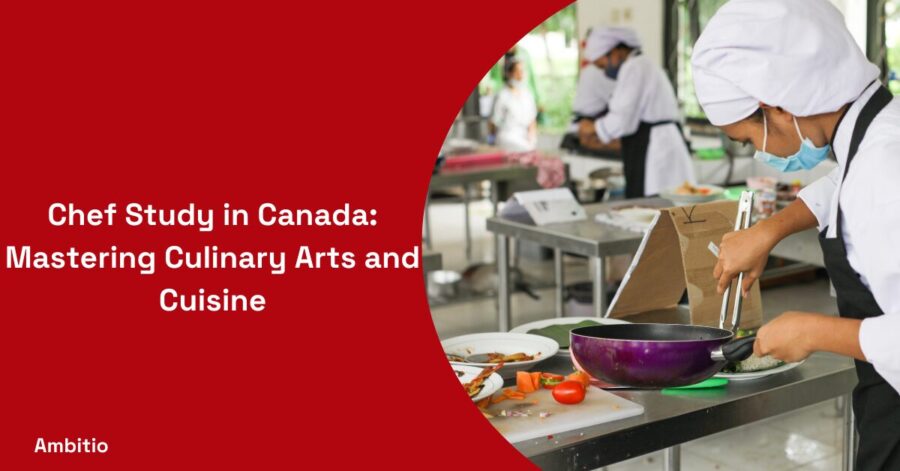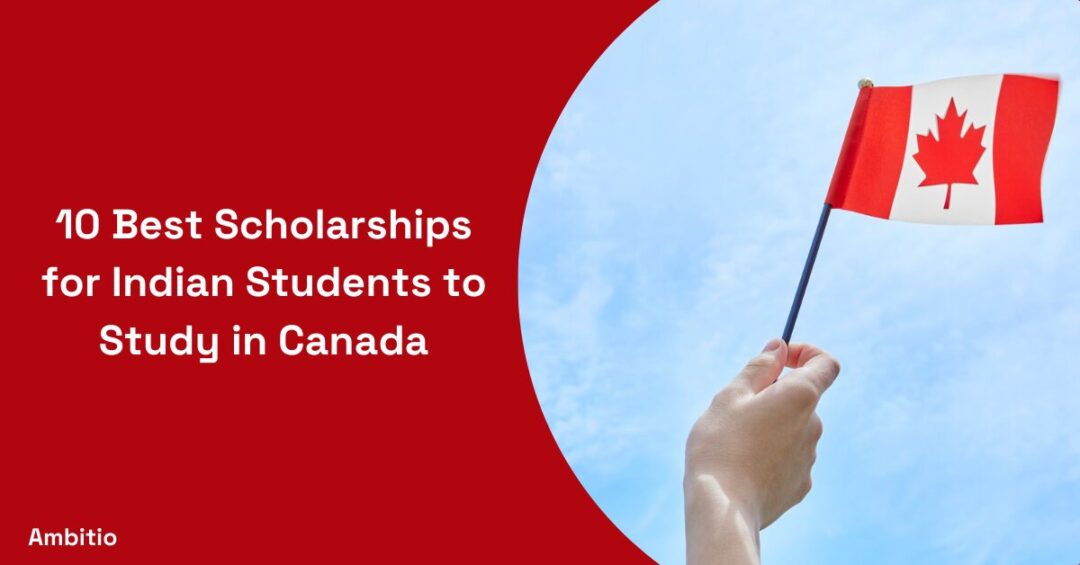13 December 2024
5 minutes read
Chef Study in Canada: Mastering Culinary Arts and Cuisine

Introduction
In 2024, Canada stands out as a leading destination for culinary education, offering an array of opportunities for aspiring chefs. With its rich culinary heritage and diverse food culture, Canada is an ideal place to study culinary arts.
Courses in culinary management and culinary arts are set to begin on January 2, 2024, in renowned institutions across the country. From hands-on training in modern kitchens to theoretical lessons in food science, these programs are designed to equip students with the skills and knowledge required to excel in the global culinary scene.
Whether you’re interested in becoming a professional chef, pastry artist, or culinary entrepreneur, Canadian culinary schools provide a comprehensive education that combines tradition with innovation.
Culinary Arts and Chef Courses in Canada 2024
The Rise of Culinary Education in Canada
Canada’s culinary education has seen a significant evolution over the years. 2024 marks a year where culinary schools like George Brown College in Toronto and LaSalle College in Vancouver offer an extensive range of courses.
These programs are not just about learning recipes; they’re about understanding food science, nutrition, and the art of presentation. Culinary courses in Canada are designed to provide a deep understanding of international cuisines, baking and pastry arts, and the latest trends in the culinary world.
The curriculum often includes essential business and hospitality management skills, preparing students for diverse career paths in the culinary industry.
Ontario’s Culinary Scene: A Blend of Tradition and Innovation
Ontario, known for its diverse food culture, offers a unique culinary education experience. Colleges in Ontario present a blend of traditional cooking techniques and contemporary culinary practices.
Diploma programs in culinary arts and culinary management focus on practical skills, food safety, and kitchen management, ensuring students are well-prepared for the demands of a professional kitchen. These programs often include exposure to international cuisine, equipping students with the ability to cater to a global palate.
Vancouver’s Culinary Arts: Embracing Global Flavors
Vancouver, a city celebrated for its multicultural food scene, provides an exceptional environment for culinary students. The city’s culinary schools offer programs that emphasize international flavors, sustainable cooking practices, and innovative culinary techniques.
Students here learn about a wide range of cuisines, from classic French to contemporary Asian fusion, reflecting Vancouver’s diverse population. Programs in pastry arts and bakery are also popular, focusing on the art of bread-making, desserts, and artistic presentation.
Culinary Courses in Canada: A Gateway to Becoming a Professional Chef
The Professional Chef Diploma Program: Crafting Culinary Experts
- Comprehensive Curriculum:
- Core Cooking Techniques: In-depth training in essential cooking methods, sauce making, and seasoning techniques.
- International Cuisine: Exposure to various global cuisines, allowing students to develop a versatile culinary style.
- Menu Development: Skills in creating diverse menus, understanding food pairings, and course sequencing.
- Practical Kitchen Experience:
- Hands-On Training: Extensive practice in professional kitchen settings, emphasizing speed, efficiency, and precision.
- Live Cooking Sessions: Opportunities to cook in real-time scenarios, simulating restaurant, and high-pressure culinary environments.
- Business and Management Skills:
- Kitchen Management: Understanding the dynamics of kitchen operations, staff management, and workflow optimization.
- Food Costing and Budgeting: Skills in managing food costs, inventory control, and budgeting for a culinary business.
- Nutrition and Food Safety:
- Health and Nutrition: Knowledge of nutritional values, dietary restrictions, and healthy cooking practices.
- Food Safety Standards: Training in hygiene, food handling, and safety regulations in professional kitchens.
- Personal Skill Development:
- Creativity and Innovation: Encouraging creativity in recipe development and presentation styles.
- Communication Skills: Enhancing teamwork and communication abilities essential for kitchen leadership.
- Industry-Ready Skills:
- Real-World Preparation: Emphasis on preparing students for the realities of working in a commercial kitchen.
- Adaptability: Training to adapt to different culinary settings, from fine dining to fast-paced environments.
- Certifications and Credentials:
- Recognized Qualification: Earning a diploma recognized by the culinary industry, enhancing employment opportunities.
- Certification Opportunities: Possibility to obtain additional certifications like a food handler’s license.
- Networking and Career Opportunities:
- Industry Connections: Opportunities to meet and learn from established chefs and culinary professionals.
- Career Services: Assistance with job placements, internships, and career advice post-graduation.
- Culinary Competitions and Events:
- Participation in Contests: Chances to compete in culinary competitions, showcasing skills and creativity.
- Culinary Events: Involvement in food festivals, pop-up kitchens, and other culinary events for practical experience.
The Professional Chef Diploma Program is designed to mold culinary enthusiasts into skilled professionals, ready to take on the challenges of the culinary world with confidence and expertise.
Specialized Culinary Programs: Pastry Arts and International Cuisine
- Focus on Pastry Arts:
- Comprehensive Curriculum: Courses cover the art of baking, chocolate making, confectionery, and dessert artistry.
- Techniques and Skills: Students learn various baking techniques, pastry decorations, and the science behind creating delicate pastries.
- Artistic Presentation: Emphasis on the aesthetic aspects of pastry making, including plating and decoration skills.
- Exploring International Cuisine:
- Global Culinary Techniques: Instruction in diverse cooking methods from around the world, including Asian, Mediterranean, and Latin American cuisines.
- Cultural Immersion: Understanding the cultural significance and history behind various international dishes.
- Ingredient Mastery: Learning about unique ingredients specific to different world cuisines and their culinary applications.
- Hands-On Learning Experience:
- Practical Kitchen Sessions: Extensive hands-on training in state-of-the-art kitchen facilities.
- Real-World Application: Opportunities to prepare and present dishes in simulated restaurant environments or real culinary events.
- Career Opportunities:
- Diverse Career Paths: Graduates can pursue careers as pastry chefs, artisan bakers, or specialists in international cuisine.
- Entrepreneurial Ventures: Skills gained are applicable for starting a bakery, dessert shop, or restaurant focusing on specific cuisines.
- Integration with Industry Standards:
- Current Trends and Techniques: Courses stay updated with the latest trends in pastry arts and global cuisines.
- Industry Connections: Networking opportunities with established chefs and industry professionals through guest lectures and culinary events.
- Educational Enrichment:
- Guest Workshops: Sessions by renowned pastry chefs and international cuisine experts.
- Culinary Competitions: Opportunities to participate in culinary contests and showcases to hone and display skills.
- Certifications and Recognition:
- Professional Credentials: Completion of these programs often leads to recognized certifications in pastry arts or international cuisine.
- Portfolio Development: Assistance in building a professional portfolio showcasing a range of culinary skills and creations.
These specialized culinary programs in pastry arts and international cuisine offer a blend of creativity, technical skill, and cultural understanding, equipping students with the expertise to excel in the dynamic and diverse world of culinary arts.
Integrating Food Science and Nutrition in Culinary Education
A unique aspect of culinary education in Canada is the integration of food science and nutrition into the curriculum. Understanding the science behind cooking processes and the nutritional value of ingredients is crucial for modern chefs.
Courses in food science cover topics like food preservation, fermentation, and molecular gastronomy, while nutrition classes focus on dietary needs, health-conscious cooking, and allergen-aware menu planning. This comprehensive approach ensures that graduates are equipped to meet the evolving demands of the culinary industry.
Conclusion
Studying culinary arts in Canada in 2024 offers more than just traditional chef training; it’s an opportunity to immerse oneself in a world where culinary traditions meet innovation.
With courses starting on January 2nd and a variety of program options, aspiring chefs can find the perfect fit for their culinary aspirations. Canadian culinary schools not only provide the technical skills needed in the kitchen but also foster creativity, business acumen, and a deep appreciation for global cuisines.
Whether you dream of running your own restaurant, becoming a pastry artist, or exploring the science of food, a culinary education in Canada is your gateway to a fulfilling and exciting career in the culinary world.
FAQs
Q1: What is the start date for culinary courses in Canada in 2024?
Culinary courses in Canada are set to commence on January 2, 2024. It is advisable to apply early and prepare for the journey ahead.
Q2: Do Canadian culinary schools offer programs for international students?
Yes, many culinary schools in Canada welcome international students and offer a range of programs in culinary arts, pastry arts, and culinary management, among others.
Q3: What types of culinary programs are available in Canada?
Canada offers diverse culinary programs including diplomas in culinary arts, culinary management, professional chef programs, and specialized courses in pastry arts, international cuisine, food science, and nutrition.

You can study at top universities worldwide!
Get expert tips and tricks to get into top universities with a free expert session.
Book Your Free 30-Minute Session Now! Book a call now




























